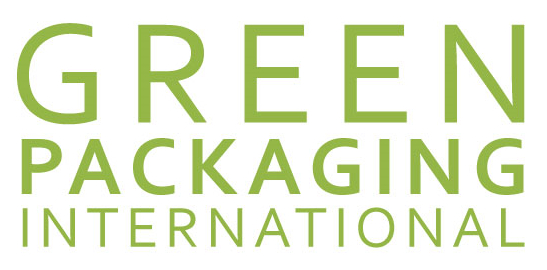Super User
Metsä Board’s simulation and testing services help develop secure pharma packaging
Ensuring that vaccine vials and their potentially life-changing contents remain safe, sterile and identifiable throughout their tightly controlled supply chain is no easy task, and taking risks is not an option. With the new extended 360 Service offering, Metsä Board, part of Metsä Group, is testing the paperboards and simulating packaging designs used by pharma manufacturers to package and protect vaccine doses, providing absolute confidence that the materials are up to the task.
COVID-19 and other vaccines are typically stored and transported in extremely cold conditions, which can be as low as -70 degrees Celsius, before being thawed out ready for administration. The secondary paperboard packaging must be able to withstand these temperature extremes and protect the vials throughout the entire process.
When a converter is producing packages for cold-chain transportation they have to be 100% certain that the materials they are using are appropriate. This is where Metsä Board’s in-depth testing and simulation capabilities are extremely valuable for the pharma industry.
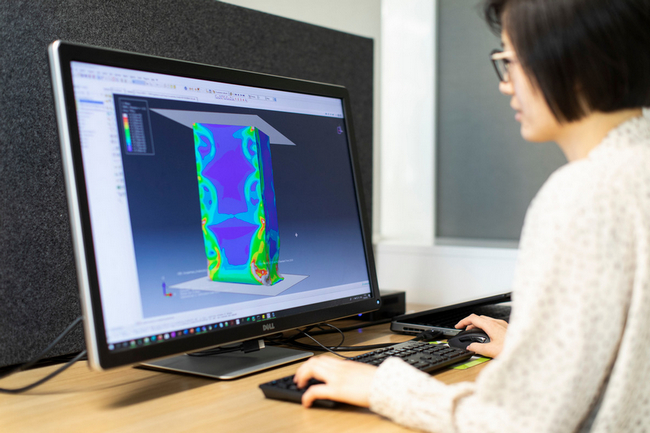
“Paperboard for pharma packaging needs to retain its specified thickness, mechanical strength and water absorption properties regardless of the conditions it faces, and it must not affect the primary packaging in any way. Any changes in dimensions could cause curling or bulging, which could pose a risk to the integrity of the packaging and therefore the safety of the product inside. We are able to test paperboard and packaging samples in both extremely cold and extremely humid conditions, and develop packaging strength simulations to demonstrate how a package will perform in the real world,” Markku Leskelä, VP Research and Product Development, Metsä Board, says.
At its Excellence Centre in Äänekoski, central Finland, Metsä Board has the capabilities to test the performance of paperboard and pharmaceutical packaging samples across a wide temperature and humidity range. The conditions can be varied according to the specific needs of each individual case, and it is also possible to programme different cyclic temperature and humidity changes to mimic the real-life conditions faced by vaccines as they travel along the supply chain.
“With the help of a local partner we can test packaging samples down to -70 degrees Celsius and combine transportation tests with board conditioning tests,” says Leskelä. “This kind of thorough research provides our customers with the confidence that the paperboard they want to use is appropriate for the application in question. And if the results show that it is not, we can recommend an alternative.”
Metsä Board’s simulation capabilities include finite element (FEM) simulation, where it is possible to take a 3D design drawing or measure the dimensions of an existing package sample, and use this structural data together with the strength data of the paperboard to calculate the strength of a complete packaging design. “With powerful computers and skilled personnel at our disposal, we can perform this kind of simulation within a single day to help speed up the process of getting a critical drug to market,” Leskelä highlights.
Metsä Board
Metsä Board is a leading European producer of premium fresh fibre paperboards. We focus on lightweight and high-quality folding boxboards, food service boards and white kraftliners. The pure fresh fibres we use in our products are a renewable resource, traceable to origin in sustainably managed northern forests. We are a forerunner in sustainability, and we aim for completely fossil free mills and raw materials by 2030.Together with our customers we develop innovative packaging solutions to create better consumer experiences with less environmental impact. In 2020, our sales totalled EUR 1.9 billion, and we have about 2,400 employees. Metsä Board, part of Metsä Group, is listed on the Nasdaq Helsinki.
Metsä Group
Metsä Group leads the way in the bioeconomy. We invest in growth, developing bioproducts and a fossil free future. The raw material for our products is renewable wood from sustainably managed northern forests. We focus on the growth sectors of the forest industry: wood supply and forest services, wood products, pulp, fresh fibre paperboards, and tissue and greaseproof papers.
Metsä Group’s annual sales is approximately EUR 5.5 billion, and we have around 9,200 employees in 30 countries. Our international Group has its roots in the Finnish forest: our parent company is Metsäliitto Cooperative owned by 100,000 forest owners.
WestRock Announces Commercial and Operational Leadership Changes
WestRock Company (NYSE: WRK), a leading provider of differentiated, sustainable paper and packaging solutions, have just announced the future retirement of Jeff Chalovich, president of Corrugated Packaging and chief commercial officer, after an incredible 23-year career with WestRock. Moving forward, WestRock has also announced an evolution of its commercial and operational leadership structure and team reporting to president and chief executive officer, David B. Sewell.
Jeff Chalovich has made substantial contributions to both WestRock and the paper and packaging industry. During his career, Jeff has held various management and leadership roles in the Company’s commercial, containerboard and corrugated packaging businesses. He will retire from WestRock in August 2021.
 “Jeff is well respected across the industry as an expert in corrugated packaging, and he has led the commercial and corrugated team incredibly well during his time with our Company,” said Sewell. “As a member of our leadership team, Jeff has led the development of our commercial organization and set the strategic and operational foundation for our corrugated packaging business. I and the rest of the WestRock team wish Jeff the very best in retirement.”
“Jeff is well respected across the industry as an expert in corrugated packaging, and he has led the commercial and corrugated team incredibly well during his time with our Company,” said Sewell. “As a member of our leadership team, Jeff has led the development of our commercial organization and set the strategic and operational foundation for our corrugated packaging business. I and the rest of the WestRock team wish Jeff the very best in retirement.”
In addition, the Company announced a new commercial and operational leadership structure aligned with WestRock’s goals of leveraging the power of the enterprise, accelerating innovation and leading in sustainability. This new structure will enhance market alignment, enable greater agility and deliver stronger efficiencies.
"This structure aligns with the focus I have highlighted on enhancing our commercial strategy, operational excellence and productivity across the enterprise, which are all important levers to meet and exceed the needs of our customers by delivering differentiated solutions that will accelerate profitable growth, " said Sewell. "I am confident the changes we are making will further strengthen our Company and create value for our shareholders."
New Executive Leadership Structure and Roles
- Patrick (Pat) Lindner is assuming the role of president, Commercial, Innovation and Sustainability. In this role, Pat is responsible for leading the Company’s strategy, marketing, innovation, sustainability, enterprise commercial operations and machinery business. Bringing these critical functions together will accelerate the Company’s efforts to bring complete solutions for WestRock’s customers through WestRock’s unique portfolio.
- Patrick Kivits is assuming the role of president, Consumer Packaging. This business includes folding cartons and specialty packaging in the branded consumer, healthcare and food and beverage businesses.
- Pete Durette is assuming the role of president, Corrugated Packaging, leading the converting sales and operations for the corrugated box business.
- John O’Neal is assuming the role of president, Global Paper. This new organization combines the sales and commercial operations of the Consumer and Corrugated paperboard and containerboard businesses.
- Tom Stigers is now responsible for the operations of all WestRock mills in the role of president, Mill Operations. By combining the Consumer and Corrugated mill operations in one organization, WestRock will drive greater efficiency and effectiveness across the mill network.
About WestRock
WestRock (NYSE:WRK) partners with our customers to provide differentiated, sustainable paper and packaging solutions that help them win in the marketplace. WestRock’s team members support customers around the world from locations spanning North America, South America, Europe, Asia and Australia. Learn more at www.westrock.com
SWAPP® with BillerudKorsnäs to sustainable packaging
SWAPP® to paper packaging for a sustainable future! SWAPP® with an extra P for paper is a range of fibre-based packaging materials from BillerudKorsnäs to enable transition from plastic to paper and meet new consumer demands through better sustainability performance for people and the planet.
BillerudKorsnäs’ SWAPP® is an opportunity for companies to grow business by meeting new consumer and regulatory demands through renewable and innovative paper applications. SWAPP® is a collaborative and seamless process where the BillerudKorsnäs guides brand owners and retailers through the transformation towards sustainable paper packaging solutions.
“The FMCG packaging market is in a transformation phase – immense change will have to take place if brand owners and retailers are to meet directives and fulfil corporate commitments by 2025. With the SWAPP® offering BillerudKorsnäs provides sustainable paper alternatives to resolve some of the most imminent challenges: driving plastic reduction, CO2 reduction, and increasing recycling rates”, says Patrik Bosander, Director Packaging Solutions at BillerudKorsnäs.
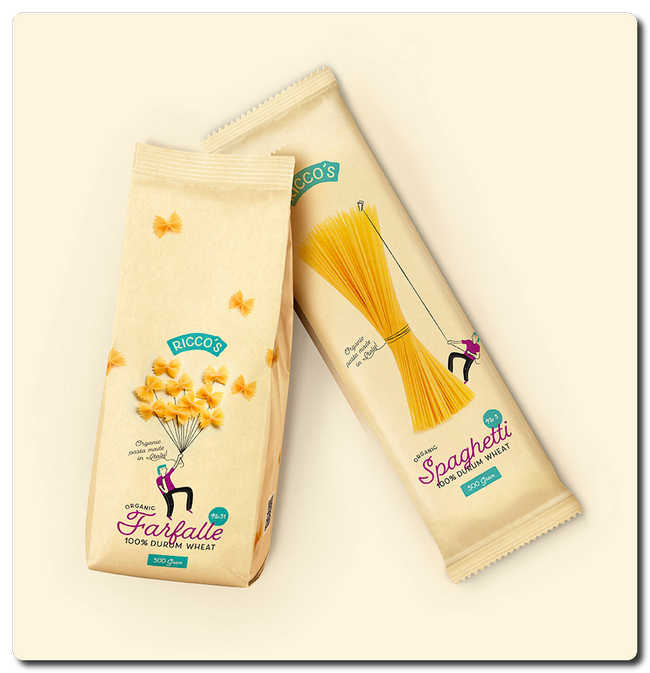
BillerudKorsnäs takes responsibility for the transition from A to Z. Within a SWAPP® project the team supervises all actions to deliver a solution designed for consumer appeal and commercial performance. BillerudKorsnäs can provide paper material expertise, industrial experience, a network of converters and designers and prepare for a full-scale industrial packaging production.
“SWAPP® is about focusing on the needs and market requirements of brand owners and retailers as they move to paper solutions. Our brand owner managers and project teams collaborate with the key functions within the brand owner’s organization – packaging development, brand management, production – to deliver paper solutions that are “on brand” and are suited for their own production scale-up. We orchestrate the critical players in the supply chain: from the brand’s production hall and filling machine adaptation, to converting and guidance to capable partners and ultimately to our own paper mills and innovation teams.” says Kristopher Fain, Director Solutions Sales, BillerudKorsnäs.
Read more here: https://www.billerudkorsnas.com/our-offer/packaging-solutions/swapp
BillerudKorsnäs provides packaging materials and solutions that challenge conventional packaging for a sustainable future. We are a world-leading provider of primary fibre based packaging materials and have customers in over 100 countries. The company has 8 production units in Sweden, Finland and the UK and about 4500 employees in over 13 countries. BillerudKorsnäs has an annual turnover of about SEK 24 billion and is listed on Nasdaq Stockholm. www.billerudkorsnas.com
Penn Color’s penneffex™ Sparks Inspiration and Innovation in Consumer Goods Packaging Design
Penn Color’s penneffex™ delivers a high-end, eye-catching finish for FMCG packaged products. With nearly unlimited customization options, the penneffex™ line combines Penn Color’s creativity, expertise in colors and special effects and knowledge in manufacturing processes, to inspire creative brand design ideas in product categories such as home care, personal care, food and beverage, and more.
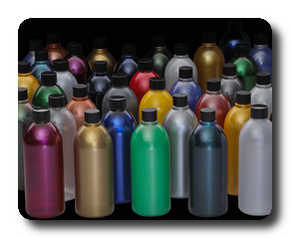 With variations including matte, brushed metal, frost, metallic, luster, and bubbles, penneffex™ offers brands a powerful way to engage with the consumers’ senses and emotions. Whether the consumer is walking through the store, or idlily shopping on-line, penneffex™ enables brand owners and creative marketing teams to better engage with their loyal and new customer base to create a unique and eye-catching product design that conveys brand values like high-end quality, sustainability, transparency, and more. The products utilize creativity and advanced technologies to bring product packaging in line with brand’s messaging and values.
With variations including matte, brushed metal, frost, metallic, luster, and bubbles, penneffex™ offers brands a powerful way to engage with the consumers’ senses and emotions. Whether the consumer is walking through the store, or idlily shopping on-line, penneffex™ enables brand owners and creative marketing teams to better engage with their loyal and new customer base to create a unique and eye-catching product design that conveys brand values like high-end quality, sustainability, transparency, and more. The products utilize creativity and advanced technologies to bring product packaging in line with brand’s messaging and values.
“The core concept of penneffex™ is to create building blocks of unique and differentiated colors and special effects: these building blocks become a source of inspiration for product design teams and they are used in bespoke formulations, developed “live” with our customers, in our technical center.” said Phil Riccardi, Industry Manager Packaging North America. “In a typical 3 day blitz session, we utilize our extensive capabilities and a fast iteration process, to design and prototype 70 to 80 unique concepts, which are presented in their finished part form: with penneffex™, creativity has no boundaries and our development process reduces time to market by months”
“The penneffex™ line sets consumer goods products apart from other items on the shelf, by pushing the limits of product packaging design to achieve colors and effects not yet seen on the market today.” said Simon Clarke, Industry Manager Packaging Europe & Asia. “Part of the differentiation comes from our ability to combine colors and effects with the latest enabling technologies. For example, through our own prototyping capabilities and our close relationship with leading equipment manufacturers, we can use multilayer co-injection to explore hundreds more design combinations.”
Penn Color’s penneffex™ solutions are ideal for unifying brand design across a number of different products, as well as for unique packaging redesigns that are imaginative and product-inspired.
Metsä Board designs easy to recycle beverage packaging
Metsä Board, the leading European producer of premium fresh fibre paperboards and part of Metsä Group, has designed a light but strong, easily recyclable packaging for the new Chopin Organic Rye Vodka range at its Excellence Centre in Äänekoski, Finland.
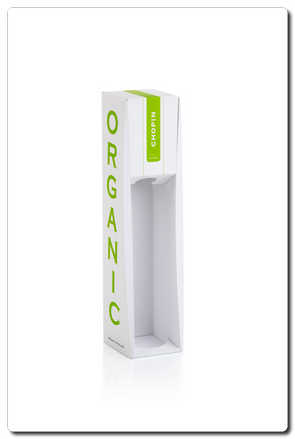 For Podlaska Wytwórnia Wódek “Polmos” S.A., the family-owned distillery that produces the Chopin Vodka brand, it was important that the packaging conveyed the brand ethos, as Joanna Dolińczyk, Marketing Coordinator, Chopin Vodka brand explains: “When we were looking for inspiration for the packaging design of our organic product, we wanted the packaging to reflect its organic production process. We had an extremely enthusiastic vision to create a truly organic and highly ecological packaging with three main goals: purity, whiteness and simplicity.”
For Podlaska Wytwórnia Wódek “Polmos” S.A., the family-owned distillery that produces the Chopin Vodka brand, it was important that the packaging conveyed the brand ethos, as Joanna Dolińczyk, Marketing Coordinator, Chopin Vodka brand explains: “When we were looking for inspiration for the packaging design of our organic product, we wanted the packaging to reflect its organic production process. We had an extremely enthusiastic vision to create a truly organic and highly ecological packaging with three main goals: purity, whiteness and simplicity.”
The packaging is manufactured using a protective F-flute, with all layers made of lightweight MetsäBoard Natural WKL Bright white kraftliner. The all-white litho-laminated packaging has a light and robust structure based on locking flaps that require no glue. No adhesive, combined with minimal coverage of low migration inks with water-based varnishing, created a package that is safe, stylish and easy to recycle. The packaging was manufactured by Prost-Key Packaging in Poland.
The opening mechanism allows the packaging to be opened and closed several times with ease, whilst also locking the bottle into place. The curved double folds add strength and reveals the bottle when viewed from the side. The whiteness of the design features the word ‘organic’ embossed on the sides and emphasises purity.
Iiro Numminen, Structural Packaging Designer, Metsä Board, commented: “The packaging communicates the brands promise to the consumer in every way. Easy recyclability was also a factor in the design concept as the importance of circular economy is paramount.”
The package was designed and tested at Metsä Board’s Excellence Centre that utilises cutting-edge technology for R&D, packaging design, and paperboard and packaging performance. Here the ambition is to accelerate material and packaging innovation and provide a collaboration platform for customers and technology partners globally.
The packaging is manufactured using the lightweight MetsäBoard Natural WKL Bright white kraftliner, produced at Metsä Board Husum mill. Its fresh fibres are 100% traceable to sustainably managed Northern European forests.
Metsä Board
www.metsaboard.com
Metsä Board is a leading European producer of premium fresh fibre paperboards. We focus on lightweight and high-quality folding boxboards, food service boards and white kraftliners. The pure fresh fibres we use in our products are a renewable resource, traceable to origin in sustainably managed northern forests. We are a forerunner in sustainability, and we aim for completely fossil free mills and raw materials by 2030.
Together with our customers we develop innovative packaging solutions to create better consumer experiences with less environmental impact. In 2020, our sales totalled EUR 1.9 billion, and we have about 2,400 employees. Metsä Board, part of Metsä Group, is listed on the Nasdaq Helsinki.
Construction of Metsä Spring and Valmet’s demo plant for 3D fibre products progressing
Metsä Group’s innovation company Metsä Spring and Valmet are building a demo plant in Äänekoski. The plant will manufacture new 3D fibre products for food packaging and other purposes.
The demo plant reached its full height on 23 March 2021 with construction work proceeding as planned. The main equipment delivered by Valmet will be installed in the autumn 2021, and the first test runs should begin at the end of 2021 – approximately 12 months after the start of the construction.
“The demo plant will test the production of new 3D fibre-based packaging. New packages will be tested with different partners to receive feedback on their market feasibility,” says Veli-Matti Hulkko, Technology Manager at Metsä Spring.
The advanced production process is efficient and flexible. Wood fibre from Metsä Group’s mills could be used to produce large volumes of completely ready packages for different purposes.
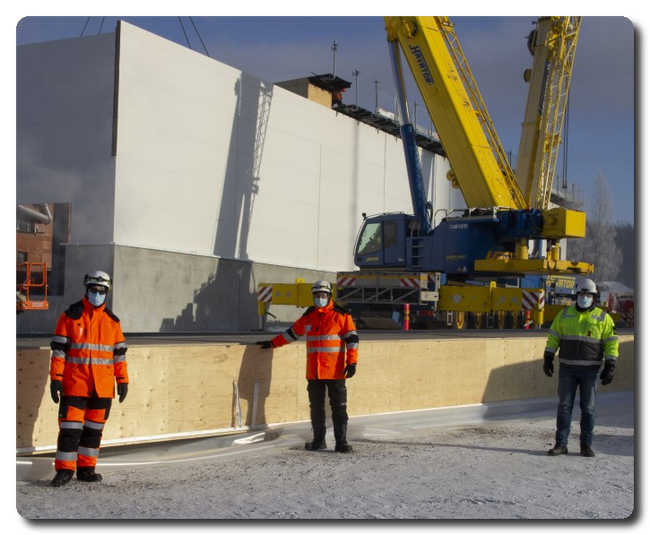
“We’ve chosen technologies that help us minimise the consumption of raw material and energy in production. The plan is that nothing goes to waste. The demo plant is located in an industrial production site operating in Äänekoski, which ensures the availability of the raw material and entirely fossil free energy. It also enables the wise use of water and other resources. And there is no need to transport materials from distant locations,” says Hulkko.
The combination of Metsä Group’s expertise in production and packaging design, Metsä Spring’s innovative organisation and Valmet’s experience as a technology supplier enables the demo plant to create a foundation for significant future business.
“Metsä Group has expertise in packaging materials, production requirements and growing markets. As a leading global equipment and machine manufacturer in the forest industry, Valmet is capable of delivering a highly automated, resource-efficient manufacturing process to the demo plant using the latest technology,” Hulkko continues.
“It’s been great to see how bold visions of the future have rapidly turned into practical measures with Metsä. Seamless cooperation with the partners has been crucial in rapid product development. We’ll be able to receive results at the end of the year thanks to the successful demo start,” says Sampo Immonen, head of Line R&D at Valmet.
The demo plant will manufacture wood-based packages, which can replace plastic and aluminium packages. Products are renewable, recyclable and biodegradable, and their raw material comes from sustainably managed forests, which are primarily owned by Finnish families. There is already now significant demand for the products, and the demand is estimated to grow in the future.
If it is possible to prove that the manufacturing method and the product function well, a larger production unit could be built next to Metsä Group’s bioproduct mill, for example.
Metsä Spring
www.metsaspring.com
Innovation company Metsä Spring invests expertise and financial resources into initiatives with the ambition to reshape the forest-based bioeconomy, aiming to increase the value for Metsä Group’s stakeholders in the long-term.
New flexoprinting machine in Jatne will answer to growing demand for sustainable food packaging
The demand for flexible packaging materials is growing amid the transition towards sustainable food packaging. Walki has answered to this need by investing in a brand new flexo printing machine in its Jatne plant in Poland.
“This new investment will significantly increase our capacity and we will be able to answer to the fast growing demand in flexible packaging”, says Andreas Rothschink, Sales Director, Consumer End Uses at Walki.
The high-speeed machine is a 10-colour, state of the art flexographic printing machine that offers top quality and low change-over waste. The investment includes a fully automatic plate mounting machine to further ensure superior printing accuracy on both paper and film and a system for fully automatic job setting in the printing machine. The inks used are water-based and hence environmentally friendly.
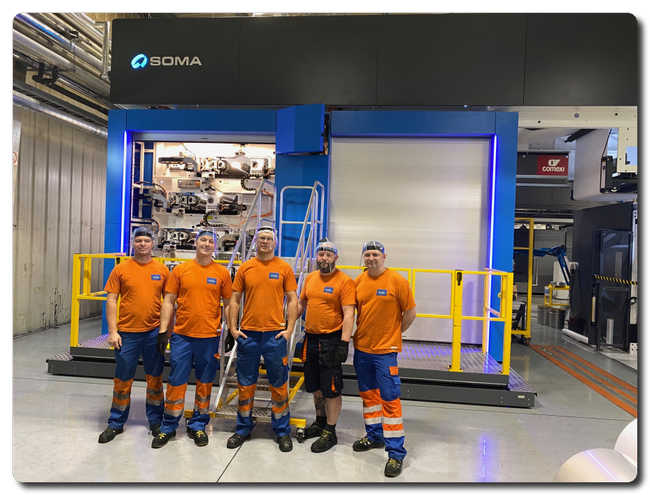
As the food industry is shifting to recyclable food packaging, paper-based materials come up as a strong contender. The look and feel of the packaging is an important differentiating factor for end consumers. This sets high demands on the print quality.
“The new flexoprinting machine assures great accuracy of the printouts and a very high quality”, says Jakub Gunert, Plant Manager in Jatne.
The importance of flexible packaging will grow substantially in the coming years as paper-based packaging is efficient both in terms of the amount of materials used and easy recyclability.
“With this investment we are strenghtening our capabilities to further improve the quality and efficiency in all of our product categories, ”, says Andreas Rothschink.
In addition to food packaging, the new machine in Jante will also serve ream wrapper customers.
For further comments, please contact:
Marko Siltala
Executive Vice President Industrial Packaging and Lean Operations
Tel. +358 40 585 2796
e-mail: This email address is being protected from spambots. You need JavaScript enabled to view it.
At Walki, we believe in a sustainable and circular tomorrow. Our mission is to accelerate the world’s transition into a zero waste future in packaging and promote the use of energy efficient materials across industries. Walki’s product solutions are designed to bring value to customers in many different markets; from sustainable materials for packaging applications to energy saving performance materials. Walki is a growing international group organized in three business areas: Consumer Packaging, Industrial Packaging and Engineered Materials, with operations in twelve different countries, both in Europe and Asia. In 2019, the Group’s annual turnover was approx. 400 million euros employing around 1000 people.
walki.com
Advances in cellulose-based food packaging material move to testing phase of industrial production
VTT is testing Thermocell plastic film made of cellulose and fatty acids in the production of food packaging in cooperation with Arla Foods, Paulig, and Wipak. Thermocell plastic material, which is made from renewable components, is to be used in the same way as fossil-based plastic. Thanks to the development work, many features of the film already meet the requirements of the food industry, and cooperation has advanced to the testing of industrial production.
Renewable origin and recyclability of packaging materials are of increasing interest to both consumers and packers. Bio-based options are being sought for oil-based, or fossil-based plastics, which could be worked, used, and recycled like traditional plastics. One emerging solution is cellulose, the structural ingredient in plants which, just like plastics, is composed of large polymer molecules. When cellulose is extracted from wood, it does not compete with food production, as many other biomaterials do. In addition, efficient production methods have already been established in the production of cellulose. However, cellulose as such has lacked one important feature of packaging plastic: thermoplasticity.
VTT developed the thermoplastic features for the needs of the food industry
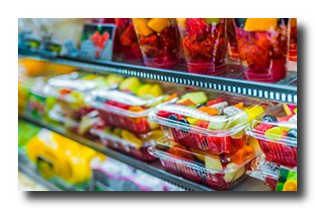 A method developed by VTT enables the production of Thermocell plastic, a thermoplastic substance, out of cellulose and bio-based fatty acids, which are suitable for applications such as injection molding, coating of paper and paperboard, and 3D printing. The current focus of development work in the manufacture of films is in extrusion technology.
A method developed by VTT enables the production of Thermocell plastic, a thermoplastic substance, out of cellulose and bio-based fatty acids, which are suitable for applications such as injection molding, coating of paper and paperboard, and 3D printing. The current focus of development work in the manufacture of films is in extrusion technology.
“We have moved from the laboratory to bigger machinery while at the same time improving the quality of the film. Our goal is to show that Thermocell film can be produced on an industrial scale using the same equipment that is used for traditional plastic films, with features that meet the needs of the food industry. For this reason, Arla Foods, Paulig, and Wipak are also taking part in the research”, says Jarmo Ropponen, the research team leader at VTT.
“The focus in our development of packaging in the coming years is on recyclability. The development of renewable, bio-based materials supports our long-term goals. The development of Thermocell still requires work to ensure that it can be used with machinery, and that it has long shelf life, among other features. We wanted to support material development so that the requirements of our products will be considered already in the early stages of development”, says Kati Randell of Paulig.
A thin, durable, protective, and safe film is required
Food packaging favours films that are as thin and durable as possible, but yet protect foods safely. Thermocell has already been shown to provide good protection against water vapour, and none of its components migrate into the food. Thermocell film can also be heat sealed using the manufacturers’ standard equipment.
A significant achievement in the development of Thermocell is the smaller thickness of the film. With advances in production machinery, the film has become more even, and its thickness is already down to 100 micrometres. If the material is to compete against thin plastic films, the thickness needs to be reduced further. The aim is also to orient the film and thereby improve its strength and its protective qualities.
Feedback from partner companies has also allowed us to see other features that are important on the market. The friction characteristics of the film are one example of this, so that it could be more easily used on industrial packaging lines”, Ropponen says.
The recyclability of Thermocell has proven to be nearly equal to that of the most common thermoplastics. It can be melted down and extruded again at least five times with no significant deterioration of its features. Recycling still requires that it should be sorted separately.
Thermoplastic bio-based plastic without additives
The first cellulose-based plastics were developed already before anyone even thought of using oil as a raw material. Cellulose acetates, which are still extensively used, date back to that time but their thermoplastic properties require large amounts of additives. Thermocell, which is produced from cellulose and fatty acids, shows thermoplastic behaviour with no additional substances at all.
In the method developed by VTT, cellulose polymers are split into shorter chains before adding fatty acids, improving the reactivity of the cellulose, making the resulting material more thermoplastic. At the same time, it gives better protection against water and it can be more easily heat sealed.
“In our most recent test runs we have utilised small amounts of traditional plastic additives because they make it easier to manufacture film, and improve its features”, Ropponen says.
Once the research group has completed the fine-tuning of the traditional plastic film applications to suit the needs of packers, the focus of development work can be shifted to practical recycling concepts. The aim is to adapt the film to collection and recycling systems that are used on the main markets in the world.
Mondi launches AegisPaper, a complete range of recyclable barrier papers for sustainable packaging solutions
Mondi, a global leader in packaging and paper, has successfully developed a new recyclable functional barrier paper range. Designed with protection in mind, this range of certified recyclable barrier paper solutions is fully integrated across Mondi’s value chain—from paper production to the barrier application—and can run on existing filling lines for form-fill-and-seal (FFS) applications.
Mondi’s AegisPaper range reduces the amount of plastic used by replacing it with a renewable resource that has specific mechanical properties, such as puncture resistance, flexibility, printability and barrier protection. The coatings technologies applied to these papers create custom barriers against grease and water vapour and ensure sealability. AegisPapers are suitable for numerous packaging applications within the dry food, frozen food, pet food, confectionery, secondary packaging, toy, e-commerce, flower packaging, and DIY industries.
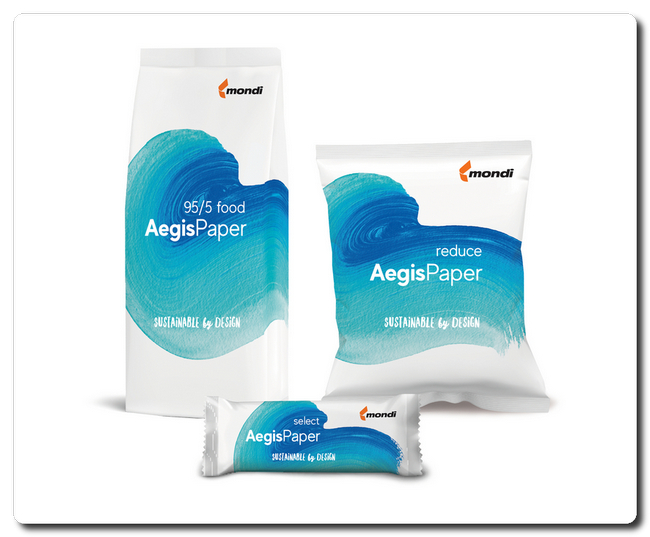
The functional barrier paper can replace plastic packaging that has traditionally been used for FMCG and consumer products. In a first step, Mondi’s collaboration with a European dry pasta producer will reduce the plastic used by 90% and save them 7,5 tonnes of plastic film per year for one of their product ranges. This pasta packaging and other commercialised solutions will be entering the market in the first half of 2021.
“Sustainability is at the centre of our strategy and I am pleased that this continues to be a focus for our customers. Thanks to combining Mondi’s know-how of paper making, coating, printing, converting, pouch and bag making alongside our expertise in selected end-uses for consumers, we make ‘paper where possible, plastic when useful,’ a reality. This launch is a breakthrough for the next generation of sustainable packaging.” said Peter Orisich, CEO, Flexible Packaging and Engineered Materials, Mondi.
Within AegisPaper, there are three grades available for different applications and requirements:
- AegisPaper select offers a wide range of custom barrier properties
- AegisPaper 95/5 food is certified as fully recyclable and has the best mechanical properties for food applications
- AegisPaper reduce provides the thinnest functional barrier paper to reduce amount of packaging material needed
The paper and coatings are all produced and applied in Europe.
Read more about Mondi’s range of recyclable barrier papers, AegisPaper, here: www.mondigroup.com/aegispaper
Technical notes:
Mondi’s fully recyclable barrier papers for packaging solutions have the following possibilities for coating, converting, and packaging.
AegisPaper
A recyclable functional barrier paper where coatings are applied to create a fully integrated Mondi solution. The range offers sealability properties and integrated barrier functionalities.
- Custom barriers against grease and water vapour
- Recyclable in existing paper recycling streams
- Runs on standard FFS lines
- Ideal substitute of plastic laminates
- Basic printing capabilities
- PVDC free
- Recyclable certifications for certain grades by PTS, CEREC and Interseroh.
The three grades of AegisPaper are:
AegisPaper select
- Dispersion coated product
- High performance sealing layer
- Grease and water vapour barrier
- Recyclable in several paper streams in Europe
AegisPaper 95/5 food
- High mechanical performance
- Insect protection
- Water vapour and moisture barrier
- 95/5 Paper to plastic ratio, recyclable in all paper streams in Europe
AegisPaper reduce
- Insect protection
- Water vapour and moisture barrier
- Recyclable in several paper streams in Europe
Mondi’s converted formats made with AegisPaper
With AegisPaper, Mondi can offer a fully recyclable certified barrier paper packaging solution that are converted into Mondi’s familiar formats. The range includes integrated barrier properties and are suitable for a wide range of FMCG applications.
- Uses Mondi paper technology to achieve mechanical properties like puncture resistance, tear strength
- Improved packaging line processing with special smooth packaging paper
- High performance sealing layer to maximize line speed and best seal integrity
- PVDC free barrier: water vapour, grease
- Choose your paper surface: natural touch or smooth for best print results
AegisBase
In addition to AegisPaper, AegisBase is also available. This is a white or brown recyclable base paper solution for functional barrier papers with extensive mechanical properties, with high stiffness for high-speed converting lines and high-stretch for wrapping applications. The sustainably sourced range offers paper structures suitable for barrier coatings applications; have excellent puncture resistance, optimal strength, and basic printability properties on a coated surface.
About Mondi
Mondi is a global leader in packaging and paper, contributing to a better world by making innovative, packaging and paper solutions that are sustainable by design. Our business is fully integrated across the value chain – from managing forests and producing pulp, paper and plastic films, to developing and manufacturing effective industrial and consumer packaging solutions. Sustainability is at the centre of our strategy and intrinsic in the way we do business. We lead the industry with our customer- centric approach, EcoSolutions, where we ask the right questions to find the most sustainable solution. In 2019, Mondi had revenues of €7.27 billion and underlying EBITDA of €1.66 billion.
Mondi has a premium listing on the London Stock Exchange (MNDI), and a secondary listing on the JSE Limited (MNP). Mondi is a FTSE 100 constituent, and has been included in the FTSE4Good Index Series since 2008 and the FTSE/JSE Responsible Investment Index Series since 2007.
FreeForm Packaging AB launches a one-sided laminate based on 85% paper
FreeForm Packaging is launching a new, stretchable, paper laminate based on 85% paper. The new laminate is considered to be “one-sided”, which has been highly requested by many brand owners and retailers. Called Standard Paper Out, it does not have the traditional polythene layer on the outside – instead, it has paper. This gives any FreeFormPack® a natural, warm feel.
FreeForm Packaging produces and sells the world’s first truly formable paper packaging solution, based on stretchable and printable paper-based laminates that you can shape, twist and emboss, along with the unique machines that produce FreeFormPack®. Up until now, FreeForm Packaging has only been able to offer laminates with polythene on both sides to ensure good sealing properties, but this has now changed. A new process enables the packages to be fully sealed and makes it possible to shape them as required. The new laminate still offers good WVTR values, although it is less effective than a double-sided laminate.
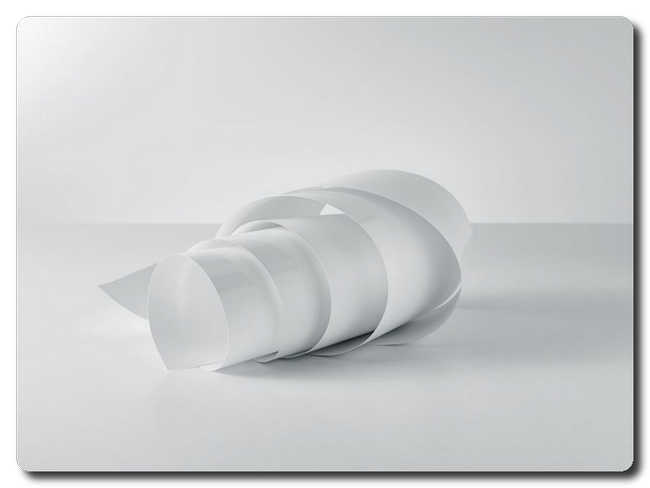
“This is like a dream come true,” says Danevert Åsbrink, CEO of FreeForm Packaging AB. The new laminate allows the FreeFormPack system to produce formable paper packaging that is pleasant to the touch, which customers have been wanting for a very long time. “We have been working hard on this for the last six years, so it feels almost unreal to have finally reached our goal,” adds Danevert.
The FreeFormPack Standard Paper Out laminate has two layers of FibreForm®, and one of its two sides has a thin layer of polyethylene that protects the contents while also protecting the packaging. Considering the increased focus in society on recyclability, the emergence of the new laminate has been perfectly timed.
FreeForm Packaging AB is a Swedish company owned by CURTI (Italy) and BillerudKorsnäs AB (Sweden). With the FreeFormPack® Machine by CURTI and the FreeFormPack® Laminate, based on FibreForm® from BillerudKorsnäs in Sweden, the company offers customers more environmentally sound packaging compared to plastic.
